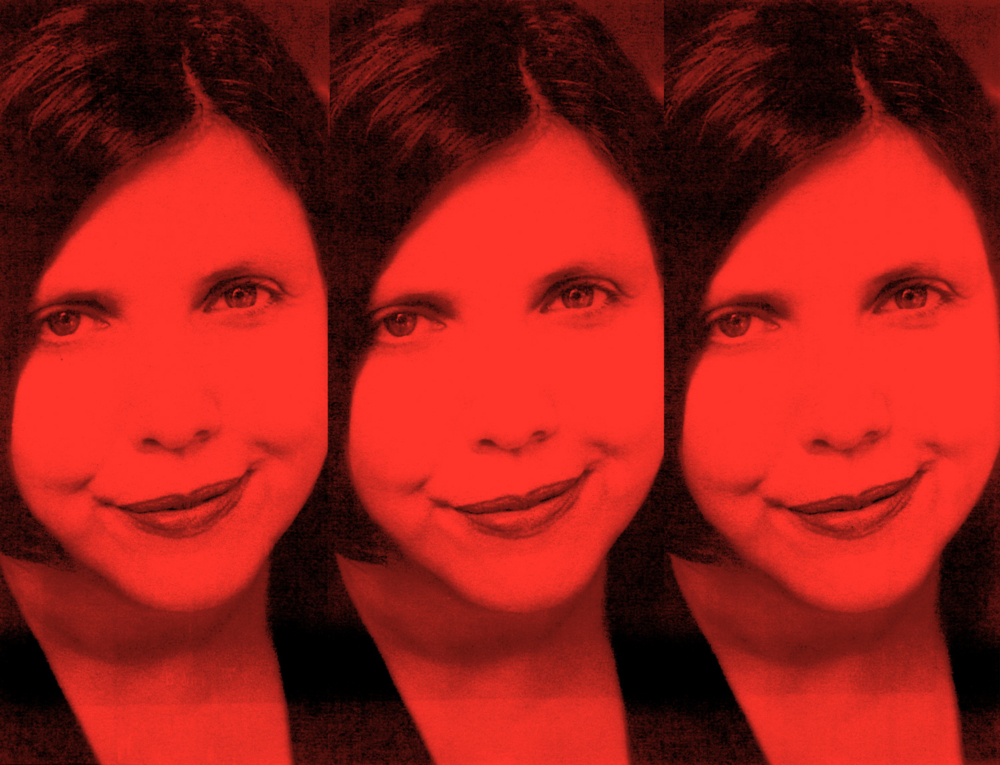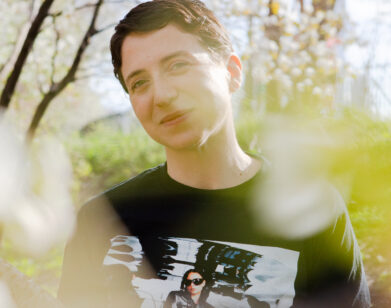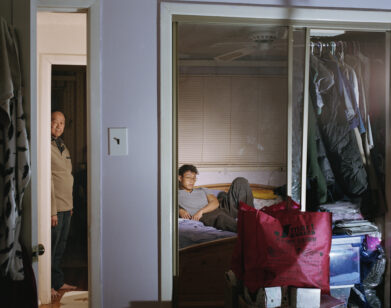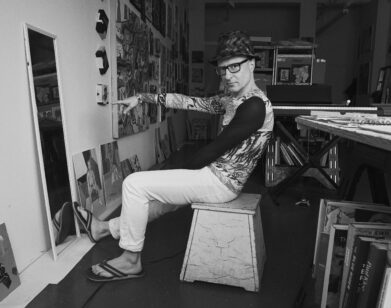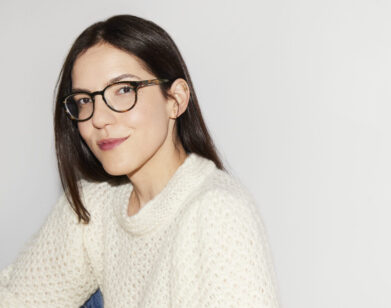Jenny Offill Stays Earnest in the Face of Fatalism
Jenny Offill’s novel Weather (Knopf) is a broodingly intense, ecstatic storm cloud of a book. Protagonist Lizzie struggles to take care of her addict younger brother while keeping her family and sense of security alive in a world dying of climate change. Lizzie’s proclivity for playing a fake shrink to friends and strangers draws her into her friend Sylvia’s podcast, called “Hell and High Water.” As Lizzie answers increasingly panicked and intense fan emails, she confronts head on what it means to live precariously on a planet that is falling apart—all while trying to save the people we love. Weather is full of dark gallows humor, doom poetry, and hope. We spoke with Offill about addiction, incandescent rage, who would make it in the apocalypse, and the power of caring.
———
YOUNG: Let’s talk about this idea of addicted versus habituated. What’s the difference?
OFFILL: Nobody’s asked me that! I was waiting to see if anybody would catch on to that. I think when they say habituated it’s a nice word to say, yeah you need this thing, you’re taking it all the time, you’ll have some withdrawal if you stop, but it’s not like, medically concerning us.
I am a life-long insomniac who goes in and out of taking sleeping pills. I ask about it when I do it for a long period of time and that’s the answer I get. They’re always a little bit like, ‘Oh, yeah I guess you do take it more often than you might need to.’ Then I go off it when I don’t have to get up early in the morning and when I don’t have to function well. When I don’t get sleep, it’s like the little thing that holds everything together.
YOUNG: You have a line about not being so addicted to something that you can’t still enjoy it.
OFFILL: Yeah, it’s a little bit tricky. I have so many good friends and people I’ve been close to over the years that have really struggled with addiction. That’s a bit of a glib line for sure. Like, when I was younger, I would occasionally get some job somewhere where I would live by myself and I’d have to tell myself, “You know, I don’t think you should buy the wine because you will drink all the wine.” I always go down that whole road in my mind, thinking about how of course that would be nice. But we all know how that story ends. With having seventeen bottles of wine.
YOUNG: The garbage bin outside is just one giant recycling bag.
OFFILL: Exactly. I’m not naturally a very addictive person because I don’t have many habits. I much more have routines and learned routines, because I’m a parent. That’s been a great, very stabilizing thing for me.
YOUNG: You write a lot in this book about time. Lizzie’s number one fear is the acceleration of days.
OFFILL: Remember when there was that weird thing where everybody was afraid of clowns?
YOUNG: Yes, and there was actually like a real live scary clown running around in the woods?
OFFILL: Yeah! Then it turned into, was it real or was it just this collective imagining? The whole thing was bizarre. But I remember I had seen some list of what people were afraid of. And one of them was clowns, one of them was public speaking. I just thought, wow, I’m not afraid of those things. I’m afraid of climate change, the people I love getting older, moving away from me. It’s the acceleration of days and potential loss.
YOUNG: One of the questions in the book is, how will the last generation know it’s the last generation?
OFFILL: I see this a lot right now with my students and with youth activists in the climate movement. I don’t think most people who are older who aren’t working in those areas understand how much rage and fear and dread younger people are feeling. There’s a level of incandescent rage. Of course, it’s uncomfortable to be the old person in the room. But I also feel like this is exactly what the consequences are. This is a generation that for the first time is feeling it emotionally, not just intellectually. Of course, in other parts of the world, this has arrived many years ago, and there have been people speaking to it.
YOUNG: It’s like youth movements throughout history—people try to scoff at it or undercut it because it’s coming from young people. Which is so fucked up.
OFFILL: It’s so fucked up. And it so ignores exactly how things change in history. Like of course it seems radical to you, of course it seems extreme to you, because you’re the old guard. Often, when a movement comes along, it’s been building for so long and people just haven’t known. It could be like Black Lives Matter or Me Too. People have been working for those goals forever; it’s just that at a certain point it pierces a larger consciousness. I noticed with my students when climate change became something that was occasionally talked about to something that became an off-hand reference of doom. I noticed when it went fatalistic.
YOUNG: And normalized.
OFFILL: Exactly, in the sort of way that another bunch of kids who grew up having to duck and cover under desks would make jokes about atomic bombs.
YOUNG: Having a bit more fun with climate change, if you will. You write about drafting people for Doomsteads. Who’s gonna make the cut?
OFFILL: I would not make anyone’s cut.
YOUNG: Me neither.
OFFILL: Whenever I read lists of those things that would be useful, I’m like, wow, I need to learn how to play the guitar, at minimum.
YOUNG: At least you could be a traveling bard in a post-apocalyptic hellscape.
OFFILL: Oh yeah. The only thing I have is a pretty good Doomstead library. But I feel like no one would even take my library. They would be, like, fixing things and want someone who was medical. They might let me just hang out with my one allotted piece of jerky.
YOUNG: I kind of love how Lizzie’s response is that she’s a good storyteller. It would be a shame if we lost that. Maybe we do need some storytellers to be in our Doomsteads.
OFFILL: I do think if you look at people in difficult times in history, one of the things that comes up again and again is that the jokes are really dark and really funny. It’s a good coping mechanism. I like to think we won’t lose it. I decided to make Lizzie’s character a little of a compulsive go-to-the-joke kind of person. I tried to do that less as the book went on, that she would stay in the space of feeling unnerved by how possibly earnest she was being. That was a real dichotomy in my head when I was young, between being funny and being earnest. I had to give that up as I tried to do more activism.
YOUNG: There’s this idea that being earnest is somehow uncool. But it’s admirable, really. It means you care.
OFFILL: Right. I’ve never been a very cynical person, so I like people who care about things. I really prize humor so much in people and in friends. It’s part of my daily life that makes me happy, like some people like to cook. Sometimes it’s just not a personality trait that goes alongside earnestness.
YOUNG: I want to talk about taking on other people’s problems as a way of ignoring our own.
OFFILL: If you’re someone people feel able to open up to easily, if you’re seen as a sympathetic listener and someone who has some particular emotional intelligence, people will seek you out and want that from you in the same way they would want other things from you if you had them. Like if you were really good looking, they would want to wander around with you and be seen with you. I have this myself sometimes, so I could put it in this character. For me, the tricky thing is trying to figure out when I’m creating that dynamic because I just don’t how to do anything else. That’s what I think you’re talking about with hiding. Sometimes you try not to do it, but you’re still giving off those ‘the doctor is in’ vibes.
I just think we’re all so lonely these days and it’s a societal thing. We have all these things that are meant to take the edge off, like going online. I think they make us not notice how lonely we feel for a little while until we come back out. We are really social animals and we need to be in the presence of other people and see the little micro-expressions on their faces. But that’s always messy. So, most of us, especially with an introverted streak, feel like oh, this is nice. But I feel like between our political crises and climate crises, I came away from writing this novel feeling that moving away from the collective is a big mistake. We all have to figure out where our place is and where our place is with others. Figure out how you can change the things that are scaring you, and then go out and try to change them with other people.

